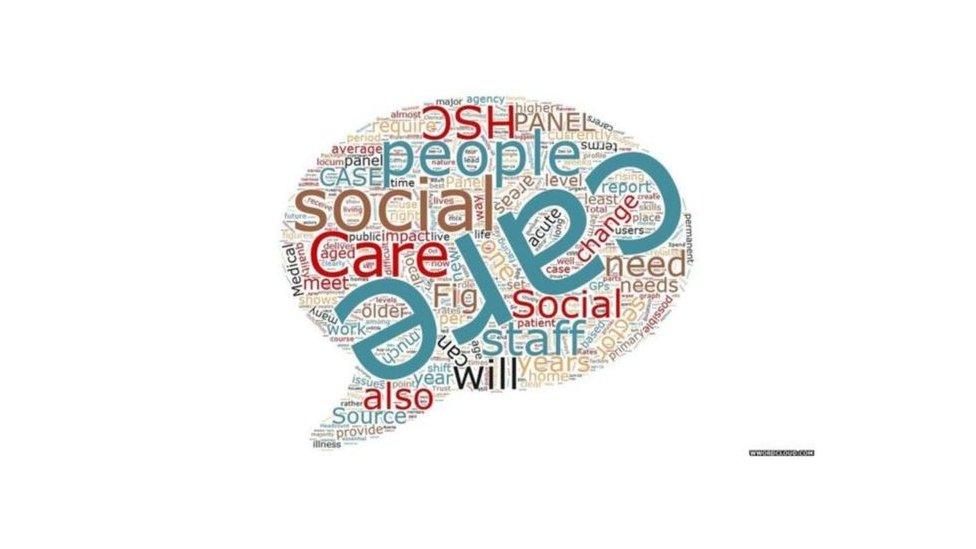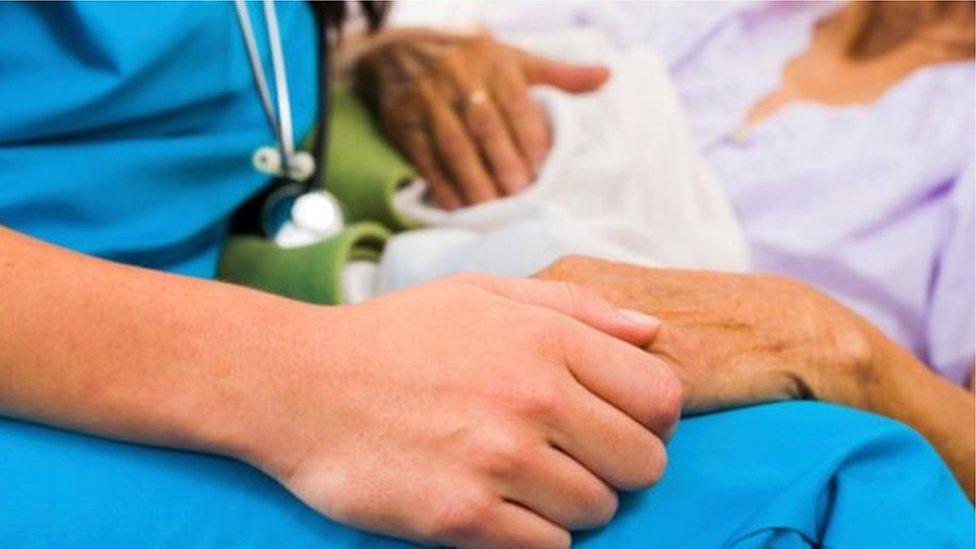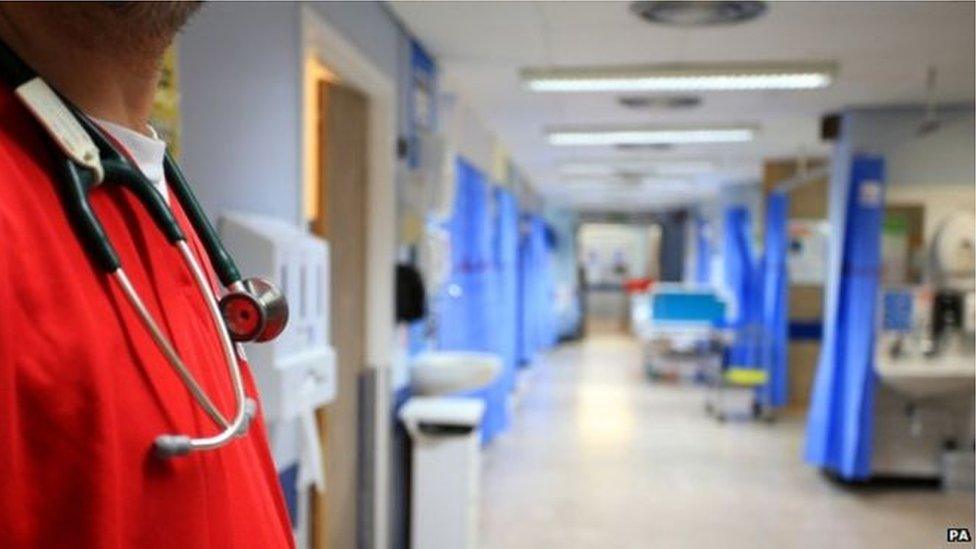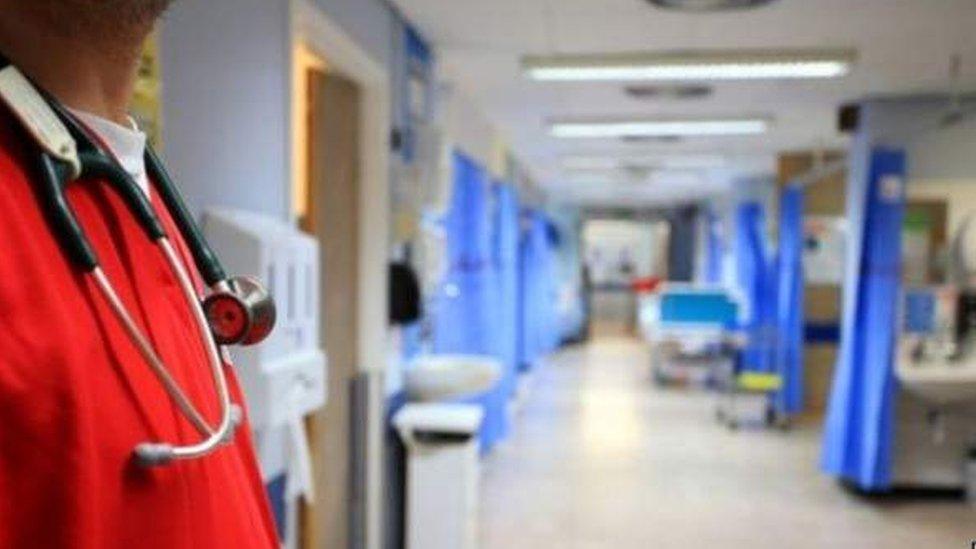Hospital waiting lists: Radical plan to tackle problems shelved
- Published

The minister said the panel of experts will lead the debate on the best future configuration of health and social care services in Northern Ireland
A radical plan to tackle hospital waiting times in Northern Ireland has been shelved due to political uncertainty, the BBC understands.
The health minister was expected to announce a new strategy this month.
But on Thursday, Michelle O'Neill said: "There is no longer an executive in place to agree a budget for an elective-care plan."
The Stormont institutions face collapse following the resignation of Martin McGuinness as deputy first minister.
The 2017/18 budget has not been agreed and plans to secure funding have failed.
Latest figures from the Department of Health, revealed a total of 243,141 patients in Northern Ireland were waiting for a first consultant-led outpatient appointment at the end of September - that's over 7% more than at the end of June.
According to targets set by Mrs O'Neill, at least 50% of patients should be seen within the recommended nine-week target.
The BBC understands that the minister had hoped to present a long-term plan which would have allowed the trusts to plan ahead for at least another four or five years.
The plan included using the independent sector in the short term to specifically help those who have been waiting for a considerable length of time.
'Concern and frustration'
There may also have been the potential to outsource a number of surgical cases to the independent sector before the end of this financial year. That, however, is no longer the case.
Mrs O'Neill added: "I fully recognise the concern and frustration that long waits present for patients and am committed to addressing excessive waiting times, but the absence of an executive due to the fallout over the RHI scandal makes it much more difficult.
"Trusts are continuing to prioritise patients to ensure those with greatest clinical need are assessed and treated first, and to maximise the delivery of elective activity in line with plans agreed with the HSCB."
Meanwhile, the Royal College of Emergency Medicine, the body that represents health professionals in emergency departments, has hit out at the potential impact the political instability at Stormont could have on the health service.
Sean McGovern, the vice president of RCEM Northern Ireland, says it is time for politicians to get back to work.
"There was high expectation among members given the publication of the Bengoa report and given the minister's vision of Delivering Together and this occurring against a background of presumed political stability, where there would be opportunity to deliver meaningful change in the health service.
'Opportunity lost'
"Sadly, recent events make that doubtful. We, in the Royal College, are urging them to get back up the hill and start working again for the people of Northern Ireland. "
Mr McGovern said colleagues working across emergency departments were feeling disappointed and angry.

At the end of September over 70,000 patients were waiting to be admitted to hospital that's also an increase of 11% compared to the same time last year
"I think there is a variety of emotion, disappointment at what's happened, I think they see the opportunity as being lost."
He also said that departments are struggling to cope with the intense demand being placed on them. He said with too few beds available admitting patients was too difficult.
"Furthermore, there is also a real and urgent need for a greater number of emergency medicine staff at the frontline. Staff morale is challenged but the Bengoa report and the minister's vision offered hope."
At the end of September more than 70,000 patients were waiting to be admitted to hospital that is an increase of 11% compared to the same time last year.
Waiting times for a diagnostic service have also increased. While the target states that 75% of patients should be seen within nine weeks - in September almost 40% of people breached that target.
- Published25 October 2016

- Published25 August 2016

- Published24 November 2016
